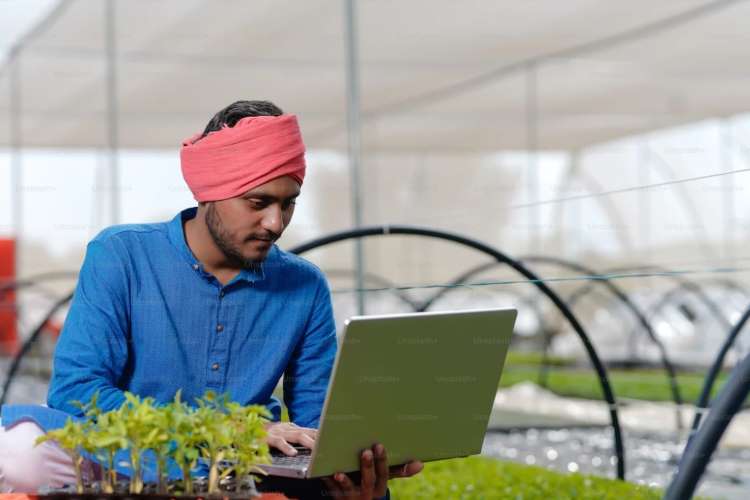
Sustainability and social engagement: Allow me to share a poignant tale from 1959 which reflects the complex interplay between social, economic, and environmental factors. The story revolves around Budhni, a 15-year-old tribal girl who found herself in the midst of a controversy after the inaugural event of Panchet dam in Damodar Valley. The chief guest, instead of inaugurating the event himself, chose to honour the labourers who built the structure. During the event, garlands were exchanged between Chief Guest and Budhni. Unfortunately, this noble gesture turned into a societal catastrophe, as Budhni was ostracised and marginalised by her society. This tale serves as a reminder of the critical importance of understanding the cultural nuances of social aspect of Sustainability.
In today’s discourse on sustainability, I find myself questioning some common practices that may not truly embody social engagement. Gestures such as providing blankets and other meagre financial assistance or tokens of goodwill to those residing around business operation areas may not be the most thoughtful or just approach. Instead, we must delve deeper into the lives and livelihoods of the communities and engage with them meaningfully for cases of resettlement and rehabilitation also.
READ I Climate change: Catastrophic floods highlight need for urgent mitigation efforts
Economic growth and sustainability
When we talk about economic development, I feel it is a classic picture of prey and predator, where predator is human population and the prey is the economic growth. The prey has to run faster or otherwise the impact of human population and associated environmental issues will cripple the economic growth leading to many people living without a good quality of life. Thus, a high economic growth is not only needed for our survival, but also for suitable opportunity for job for the youth of the area as well for peace in the society. Economic growth should be distributed to the people who are dependent directly or indirectly with the business operations.
Sustainable development is not a new concept and its roots can be traced back to the early 1970s, when the Society of Jesuits initiated discussions on the same and in 1972, when the famous book “Limits to Growth” discussed about the earth’s interlocking resources. Subsequently, we have witnessed numerous conferences, commissions, and protocols addressing environmental concerns such as United Nations Conference on the Human Environment, held in Stockholm, where the then Indian Prime Minister, Ms. Indira Gandhi gave her famous speech on environment versus poverty, where she said that one cannot take care of environment without addressing the poverty and this viewpoint still holds today.
In 1987, the United Nations Brundtland Commission defined sustainability as “meeting the needs of the present without compromising the ability of future generations to meet their own needs.” We then had the Rio Conference or the Earth Summit in 1992 and finally from 1995, the COPs started, with the recent one i.e., COP 15 held in Montreal in 2022.
For people like us in the Metal and Mining industry, we follow Arthashastra, where Kautilya says that wood, stone and metals are blessings of Lord Vishnu and he can be reached through these means, hence these should be used judiciously, meaning that we need to apply resource stewardship and utilize our resources carefully. The national mineral policy also very aptly focusses on zero waste mining which advocates sustainable use of mineral resources.
Climate change, though not a recent phenomenon, has escalated rapidly in recent times due to our accelerated pace of economic growth. The Indian ethos connects Climate change to the “Kalp” or billions of years, where there is change in life on earth. Lord Krishna in Bhagavat Gita says: “At the end of the millennium every material manifestation enters into my nature, and at the beginning of another millennium, by my potency I again create.”
Human interference has increased the pace of climate change and the changes that were supposed to be in 500 or 600 years, we are currently facing them in 20 years interval. Cyclonic occurrences, such as the ones witnessed in Gujarat, Odisha and flooding of Yamuna River in Delhi, are the recent effects of this change that is becoming increasingly frequent, highlighting the urgency of addressing environmental issues.
While the different frameworks for ESG and for sustainable development have been developed, people in the Metal & Mining industry must also revisit the ancient wisdom of our scriptures and re-embrace the values that fostered harmony between human existence and the environment.
Atharva Veda mentions that in the time of Vedic period, the Metal and Mining industry were regarded with reverence, with the learned and wise being given space in the king’s court. But with the dawn of 2013, the same industry was seen in Supreme Court on unlawful mining indicating downfall of the industry. Today, there is a pressure on the same industry for maintaining Corporate Governance by mining appropriately, judicially and legally. We did not follow the aspect of governance.
Bhumisukta of Atharva Veda also mentions that there are six types of behaviours, which if followed can keep the earth sustainable. The “Satya” or the truth should be common to NGOs, Bureaucrats and Corporates to avoid any trust deficit between different stakeholders. Additionally, we should strive to follow “Ritam,” which represents adherence to local, national, and global laws concerning climate change. Adapting to the changing times and addressing the challenges of climate change require constant learning or “Diksha.”
Constant learning through education and skilling must remain at the core of our sustainable development efforts. We must be updated on the challenges faced so that we can work towards addressing the issues of climate change. Biodiversity, Climate Change, Energy and Water are interrelated. Climate change consequences are manifested through floods and droughts and we are aware of the famous quote that “if the climate change is the shark, water is its teeth.” We need to work on the drivers of climate change and biodiversity loss as consequences are almost similar in both the challenges faced by the humanity. “Yagya” teaches us of how to properly utilize our resources and follow austerity measures.
The concept of just transition offers us hope and an opportunity against the impact of climate change. This transition has to be smooth and it should be implemented with framework of restorative justice to take care of the mistakes done in the past, distributive justice to ensure that the benefit reaches out to everyone and procedural justice to include all stakeholders in decision-making.
Finally, climate change and its effects cannot be denied, but we have the power to mitigate them through collaborative and forward-looking efforts. I remain optimistic that people are working tirelessly to create a world where economic growth coexists harmoniously with environment protection and social well-being. By embracing the wisdom of the past and marrying it with the knowledge of the present, we can usher in a more sustainable tomorrow for all.
The author is Executive Incharge, Ferro Alloys and Minerals Division, Tata Steel Ltd. The views expressed in this article are of the author and not necessarily those of the company he is associated with.

